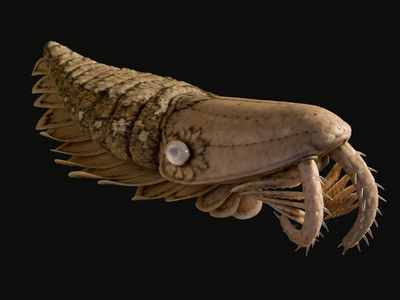An ancient marine predator
An ancient marine predator

An ancient marine predator survived longer than scientists thought. Some fossils found in Morocco have allowed scientists to discover an ancient marine predator, whose species has survived longer than previously thought, according to a study published on Wednesday, with such a new light on a crucial period of evolution of life on Earth.
These predators, called anomalocaridide, were the largest animals on the planet during the "Cambrian explosion" - a period where biodiversity has grown at an extraordinary pace - which took place behind the 540-500000000 years AFP informs.
Well-preserved skeleton, found in Morocco, has a length of one meter, while the anomalocarididede fossils discovered so far had a length of 60 centimeters.
However, paleontologists have been surprised to find that the animal has lived in the Cambrian discovered, but in a later period, Ordovician, when there was another explosion in the number of species on Earth.
This means that anomalocarididele have survived 30 million years older than experts thought, according to the study published in the scientific journal Nature.
The study was conducted by paleontologists from the Yale Peabody Museum of Natural History in the United States and the University of Ghent in Belgium.
Comments and Share this with your friends or bookmark this website ...you have a lot of options to remember this site in seconds.
Enjoy !














